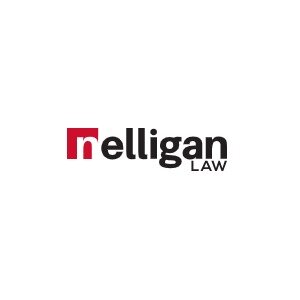Best Patent Lawyers in Ottawa
Share your needs with us, get contacted by law firms.
Free. Takes 2 min.
List of the best lawyers in Ottawa, Canada
About Patent Law in Ottawa, Canada
Patent Law refers to a section of the intellectual property law that deals with new inventions. It provides a legal framework that gives inventors exclusive rights to their inventions in Ottawa, Canada, and protects them against any unauthorized use, sale, or manufacturing. The patent law in Canada is governed by the Patent Act. The Canadian Intellectual Property Office (CIPO), a federal agency based in Ottawa, is specifically responsible for the administration and processing of intellectual property, including patents.
Why You May Need a Lawyer
You may need a patent lawyer if you're an inventor seeking to protect your invention through a patent. This process of obtaining a patent includes document preparation, filing, prosecution, and maintenance that are complex and require professional legal knowledge. Also, if you believe that someone is infringing on your patented invention, you may need a lawyer for better legal representation to enforce your patent rights. A patent lawyer will also prove helpful if you are accused of infringing on another's patent rights.
Local Laws Overview
The patent law in Ottawa is basically the federal law of Canada. According to the Canadian Patent Act, an invention must be new, useful, and inventive or non-obvious to qualify for a patent. The patent, once granted, is valid for a maximum of 20 years from the filing date. It is worth noting that patented invention rights are territorial, meaning that a Canadian patent only gives the holder exclusive rights within Canada.
Frequently Asked Questions
What is the process of filing a patent in Ottawa, Canada?
The process involves preparing a patent application with a description and claims for the invention, an abstract, and if possible, drawings demonstrating the invention. The application is then filed with the CIPO, where it goes through examination for approval.
What type of inventions can be patented in Ottawa, Canada?
Mostly any new and useful process, machine, manufacture, or composition of matter, or any new and useful improvement thereof can be patented. The invention has to be new, inventive and useful to qualify for a patent.
Is it possible to patent software inventions in Ottawa, Canada?
Yes, software inventions are potentially patentable in Canada, provided they meet the necessary criteria for patentability - novelty, utility, and non-obviousness.
How long does it take to get a patent in Ottawa, Canada?
On average, it may take around two to five years to obtain a patent after the application has been filed with the Canadian Intellectual Property Office.
Can a patent be enforced outside Canada?
No, a patent granted in Canada does not necessarily extend its rights outside the country. For protection in other countries, separate patent applications must be filed in each country or region of interest.
Additional Resources
The Canadian Intellectual Property Office (CIPO) website is a good starting point for those seeking more information. The CIPO offers detailed guides and how-to instructions for patent processes. Additionally, associations such as the Intellectual Property Institute of Canada (IPIC) can provide further support and professional connection.
Next Steps
If you need legal assistance in Patent, consider undertaking a detailed research or consultation with an experienced patent lawyer. Intellectual property law firms in Ottawa can be a good place to start. It's recommended to prepare all relevant documents and a clear summary of your situation before the consultation. Also, ensure that you understand the fees and charges associated with legal advice.
Lawzana helps you find the best lawyers and law firms in Ottawa through a curated and pre-screened list of qualified legal professionals. Our platform offers rankings and detailed profiles of attorneys and law firms, allowing you to compare based on practice areas, including Patent, experience, and client feedback.
Each profile includes a description of the firm's areas of practice, client reviews, team members and partners, year of establishment, spoken languages, office locations, contact information, social media presence, and any published articles or resources. Most firms on our platform speak English and are experienced in both local and international legal matters.
Get a quote from top-rated law firms in Ottawa, Canada — quickly, securely, and without unnecessary hassle.
Disclaimer:
The information provided on this page is for general informational purposes only and does not constitute legal advice. While we strive to ensure the accuracy and relevance of the content, legal information may change over time, and interpretations of the law can vary. You should always consult with a qualified legal professional for advice specific to your situation.
We disclaim all liability for actions taken or not taken based on the content of this page. If you believe any information is incorrect or outdated, please contact us, and we will review and update it where appropriate.








